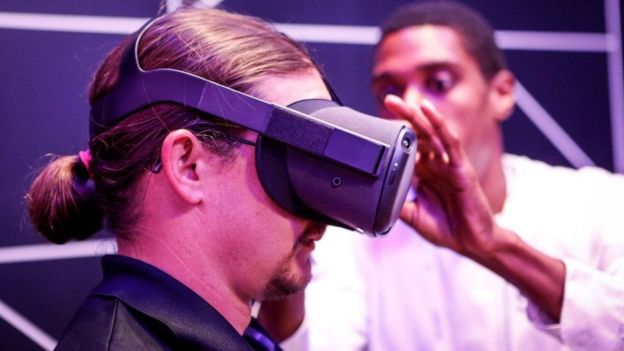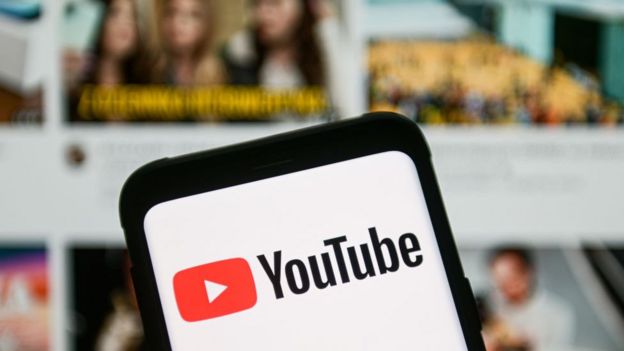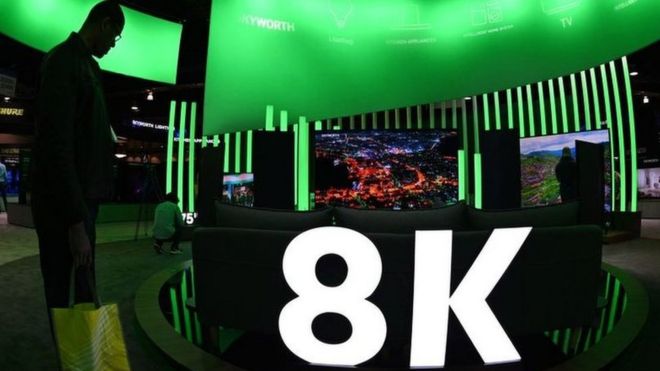A new video-encoding technology that promises to cut data use by at least half has been announced, after three years of talks involving some of the tech industry's largest players.
The standard should make it possible for people with slow connections to stream footage in higher quality than before, without pauses for buffering.
It could also pave the way for on-demand services to offer 8K content.
But one expert warned it would probably take years to catch on.
The codec - which is called both H.266 and Versatile Video Coding (VVC) - was announced by Germany's Fraunhofer Heinrich Hertz Institute.
It said Apple, Microsoft, Qualcomm, Ericsson, Intel and Huawei were among those that had worked on its development.
It hopes that in time, smartphones and other cameras will be able to automatically record and play back footage in the format. However, new chips will need to be developed before they can do so.
In the interim, recordings will need to be re-encoded to take advantage of the extra compression made possible. Playback will probably require a fast processor because today's hardware was not designed with the codec in mind.
Codec choices
H.266 is designed to require half the bitrate - the amount of data transmitted per second - as today's standard H.265.
The H.265 codec itself halved the bitrate requirement of its predecessor H.264, which is still widely in use.
"H.265 requires about 10 gigabytes of data to transmit a 90-minute ultra-high definition [4K] video," explains a press release.
"With this new technology, only 5GB are required to achieve the same quality."

In order to stream 8K video reliably, tests have indicated that homes would require internet connections capable of more than 85 megabits per second (Mbps), which is beyond what many properties have today. However, that has the potential to drop to a more manageable 40-50Mbps if H.266 takes off.
Another benefit of the tech is that users should be able to save double the amount of footage on the same amount of storage, assuming they do not take advantage of the codec to capture it in higher quality.
Many people's homes are not big enough to house a television that is large enough to appreciate the four-times boost in the number of pixels that 8K offers over 4K.
However, the jump in resolution has big advantages for virtual reality, which fills the user's field of view.
In addition, it offers a more efficient way to stream higher-resolution 360-degree footage to next-generation headsets, where the extra detail can make a big difference as users are only ever seeing a section of the recorded image at a time.
But just because the standard exists, it does not mean it will be universally embraced.
Google has previously opted to use a format it developed itself - VP9 - instead of H.265 to encode YouTube videos.
And a consortium - which includes Amazon, Apple, Facebook, Google and Samsung - has already developed a successor, AV1. The video-game streaming platform Twitch has already said it intends to switch "100%" to the format by 2024.

"The codec story is always the same: everyone always wants to get better-quality video in a more efficient state, but the challenge is getting people to adopt it," commented Ben Wood from the CCS Insight consultancy.
"To be successful, a codec has to get broad adoption from all the key players. And deciding to back one can be somewhat of a religious decision."
Latest Stories
-
Ghana Horticulture Expo 2025 to empower youth and women through agribusiness
1 minute -
Ghana must recognise child nutrition as a fundamental right, not a privilege – Dr Charity Binka
7 minutes -
Wontumi withdraws High Court application to review his bail conditions
12 minutes -
I’d rather lose the GPL title than lives – Dr. Kwame Kyei
13 minutes -
Sparta Prague sign Ghanaian defender Ivan Anokye Mensah
18 minutes -
Ghana’s real household spending to hit GH¢129.7bn in 2025 – Fitch Solutions
30 minutes -
Ban on drumming, noise-making: GPCC raises concern over harassment – Calls for stakeholder dialogue
30 minutes -
Hundreds stranded as overturned tipper truck causes massive gridlock on Accra-Tema motorway
46 minutes -
Big Chef Season 4: Fish Challenge heats up as two contestants exit the competition
1 hour -
‘Our interest is not to stay out of work; implement agreed conditions’ – Nurses
1 hour -
I deeply regret getting involved in Ghana football – Dr. Kwame Kyei
1 hour -
US Student Visa pause amid Social Media Vetting threatens Global Scholar Dreams
1 hour -
A letter was sent to OSP over Ken Ofori-Atta’s inability to be in Ghana – Frank Davies
1 hour -
Driven by vision: Inside Ghana’s first world-class automobile museum
1 hour -
Labour export agreement will ensure legitimate jobs abroad to reduce unemployment – Pelpuo
1 hour

